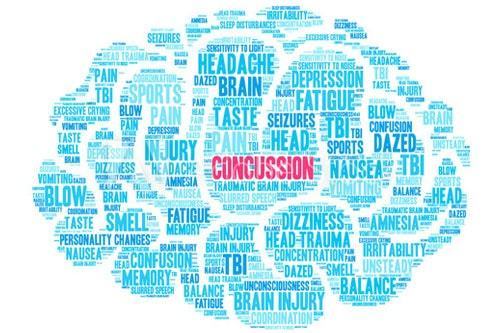When you think of physiotherapy, it’s commonly connected to the rehabilitation of sporting injuries or post-surgery recovery. However, physiotherapy can be used for so much more than just that, including helping individuals who have suffered from a concussion. Patients with a concussion will experience signs of dizziness, fatigue, loss of balance, visual irritations and headaches. How can physical therapy aid in the recovery of those symptoms? That’s exactly what we’re here to find out.
Vestibular System
This system is responsible for making sure you stay balanced, aiding with depth perception regarding where you are in your physical space. If there’s a problem with your vestibular system, it’s common to experience dizziness, a lack of balance and difficulties being in crowded spaces. With progressive retraining and education, an experienced physiotherapist will be able to help you get your vestibular system back in check.
Autonomic Nervous System
Your autonomic nervous system assists in regulating your heart rate, blood pressure and other key functions. When there are problems with this system, patients will commonly experience symptoms that include dizziness, fainting, abnormal sweating, urinary problems, digestive issues and more. Utilizing a gradual exercise treatment plant to increase functionality and reduce fatigue will help to get your autonomic nervous system back on track.
Musculoskeletal System
This system is the core of the physiotherapy universe, as it includes everything from your bones to your muscles and tendons. When you experience a concussion, common symptoms include dizziness and headaches, often originating from joint and muscle problems within the neck. By fine-tuning your posture, muscle tone, strength and joint movements through physical therapy exercises and manual therapy, physiotherapy can restore your functionality while reducing any and all symptoms.
Exercise Therapy
After experiencing a concussion, studies have shown that there’s less blood flow going to the brain during the early stages of the injury. This can last a while following your injury and you may feel your symptoms more so when being active than while resting. However, this problem can be easily solved through exercise. While it may seem worrisome, since many forms of exertion can aggravate concussion symptoms, certain activities will improve your blood flow. However, it’s crucial that you see a trained physiotherapist who knows exactly what they’re doing or you could risk further damaging your vestibular, autonomic nervous, and musculoskeletal systems.
At Pro Fusion Rehab, our highly trained Pickering and Milton physiotherapists will work tirelessly to help you accomplish your physical health goals. With facilities located in both Pickering and Milton, Ontario, our physiotherapists help patients who experience acute or chronic pain from sporting injuries, surgery, vehicular accidents and more. Our services include massage therapy, shockwave therapy, massage therapy, acupuncture and more. To talk to one of our certified specialists, give us a call today!
